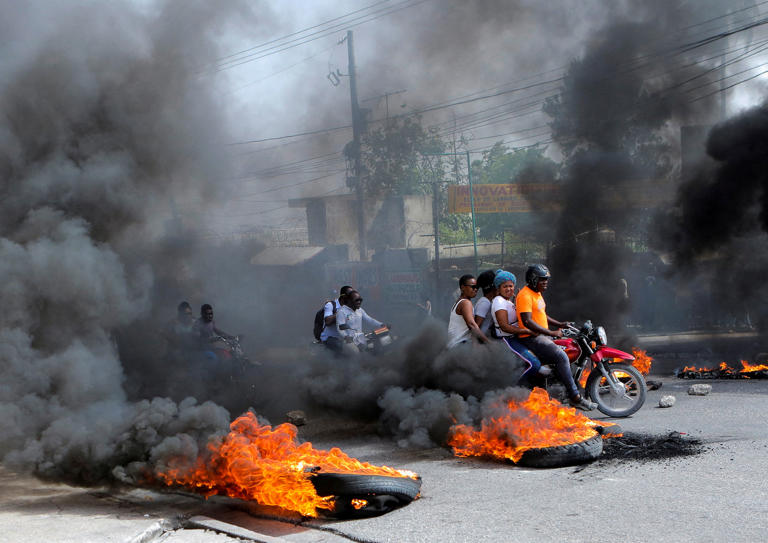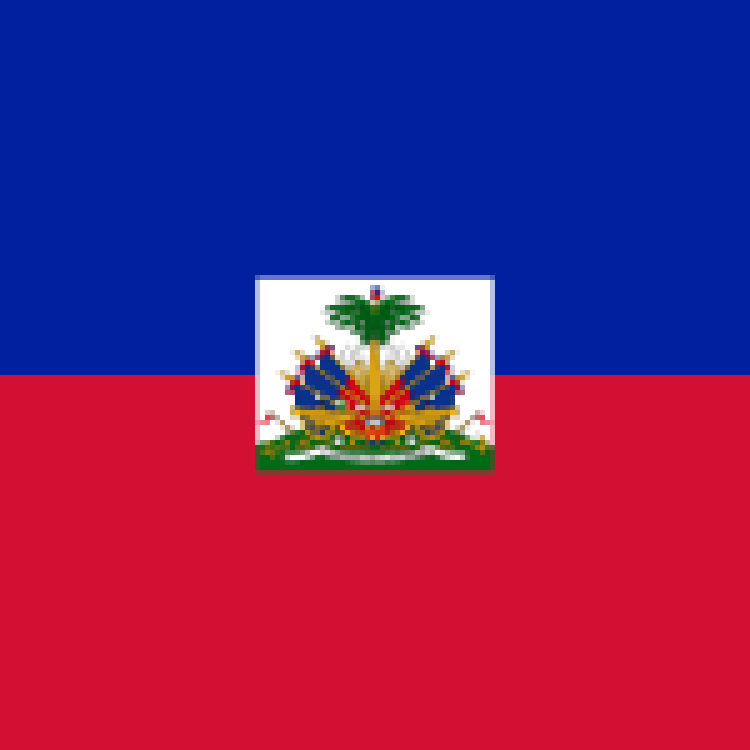The United Nations security council has approved a "sanctions regime" to punish criminal gangs in Haiti, as protests intensified against a possible foreign intervention.
The UNSC on Friday unanimously passed a resolution proposed by the United States and Mexico that sanctioned powerful gang leader Jimmy Cherizier, also known as “Barbecue”. The sanctions include an assets freeze and a travel ban.
While Cherizier was the only target named in the resolution, the measure establishes a foundation for further sanctions going forward.
“This resolution is an initial answer to the calls for help from the Haitian people,” the US representative at the UN, Linda Thomas-Greenfield, told the Security Council.
“They want us to take action against criminal actors, including gangs and their financiers, who have been undermining stability and expanding poverty in their vibrant society.”
The resolution comes as Haiti faces a cholera outbreak that has been worsened due to ongoing political and economic upheaval.
The measure expressed concern over “the protracted and deteriorating political, institutional, economic, security, human rights, humanitarian and food security crises in Haiti” and reaffirmed “the commitment of the international community to continue to support” the country.
Haiti, which has faced years of political instability, is in the middle of a deepening crisis as powerful gangs recently seized control of a key petrol terminal in Port-au-Prince, cutting residents and healthcare facilities off from much-needed supplies. The UN has warned of risks of famine if the blockade persists.
Thousands of Haitians demonstrated last Monday in Port-au-Prince to protest against the government and its call for foreign assistance to deal with endemic insecurity, a humanitarian crisis and a burgeoning cholera epidemic.
Several people were shot and one person was reported to have been killed during the rallies. Protesters blamed the police for the fatality.
"We certainly need help to develop our country, but we don't need boots" on the ground, one protester told AFP, charging that the international community was "interfering in the internal affairs of Haiti" and that the government had "no legitimacy to ask for military assistance."
Previous deployments have been marred in controversy. United Nations peacekeepers deployed in Haiti, including Sri Lankan soldiers, have fathered hundreds of babies with young mothers - sometimes through sexual violence - before abandoning them, reports a study published by the Conversation.
The Conversation, says that “girls as young as 11 were sexually abused and impregnated by peacekeepers and . . . ‘left in misery’ to raise their children alone”.
That includes Sri Lankan peacekeepers linked to a paedophilic sex ring in Haiti, where at least 134 soldiers exploited nine children from 2004 to 2006. The Sri Lankan military repatriated 114 of the soldiers after a group of children identified them as paedophiles, but none have ever been prosecuted.
Read more at Al Jazeera and France24



